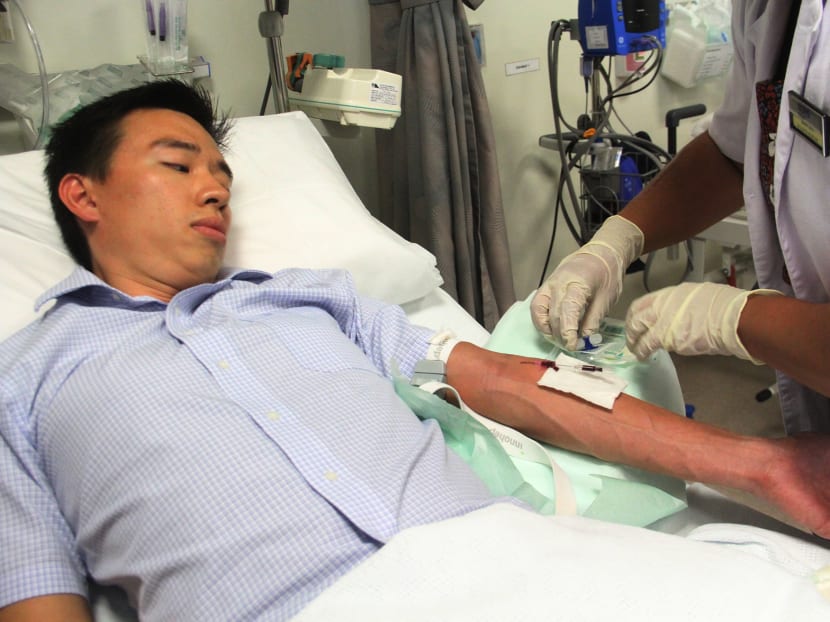Large-scale NUH study seeks to understand diabetes, improve outcomes
SINGAPORE — With the Government having declared a “war on diabetes” to tackle the costly health problem, researchers at the National University Hospital (NUH) are now embarking on a large-scale study to collect and analyse data that will be used to understand why people develop diabetes, and its related complications.

Researchers at the National University Hospital are embarking on a large-scale study to collect and analyse data to understand why people develop diabetes and its related complications. Photo: Damien Teo
SINGAPORE — With the Government having declared a “war on diabetes” to tackle the costly health problem, researchers at the National University Hospital (NUH) are now embarking on a large-scale study to collect and analyse data that will be used to understand why people develop diabetes, and its related complications.
Using data collected from 2,300 volunteers, the project, named
Assessing the Progression to Type-2 Diabetes (T2D), hopes to identify ways to change the natural course of the disease by developing more targeted and effective interventions that will improve the outcomes of patients.
Ninety per cent of diabetic patients here in Singapore, or about 400,000 people, suffer from the condition. They have high blood-sugar levels, either because the pancreas does not produce enough insulin to absorb sugar from the bloodstream, or the body does not respond to the insulin effectively.
The study, a collaboration between NUH and Janssen Pharmaceuticals, will take data from volunteers with normal or pre-diabetic sugar levels to see how their bodies can secrete and respond to insulin.
They will be asked to complete a detailed questionnaire at the start and end of their participation. Volunteers will also have to visit NUH every six months to test their blood-sugar levels for three years to see if they eventually develop diabetes.
Noting that the obesity levels here in Singapore have “gone up threefold” over the past 20 years, Professor Chia Kee Seng, an adviser to the study, said that this problem, coupled with an ageing population, will ultimately lead to more than one million diabetics here by 2050.
“The problem with diabetes is not just due to ageing,” he said. “The other big risk factor for diabetes is … just being overweight. Just by being overweight, we increase our risk (of) diabetes.”
Projected to be completed within five years, the research will help better characterise the specific risk factors and identify bio-markers that will increase a person’s susceptibility to developing T2D. It will also predict potential responses to treatment or progression to T2D-related complications such as blindness and kidney failure.
“Globally, much of our efforts are put into treating the disease rather than prevention ... ,” said Dr Sue-Anne Toh, the study’s principal investigator and senior consultant at NUH’s endocrinology division. “There is an urgent need, both at the individual and population level, to prevent illnesses associated with ageing or lifestyle. To stop and reverse this trend, improved approaches to prevent, pre-empt and treat diseases are needed.”
She also hopes that the efforts will help researchers to develop new drugs that would be more effective in treating T2D.
In Parliament earlier this month, Health Minister Gan Kim Yong had cited a public health study conducted by the Saw Swee Hock School of Public Health at the National University of Singapore, which estimated the total economic burden of diabetes for working-age adults to be at more than S$1 billion a year. The long-term costs of diabetes, taking into account the psycho-social burden, is far more than this, he added.
A new taskforce, chaired by Mr Gan and Acting Minister for Education (Schools) Ng Chee Meng, will take charge of charting and executing the national strategy to tackle diabetes.
Singaporeans and permanent residents who would like to take part in the NUH study may email brite_spot [at] nuhs.edu.sg, or call 9135 4495 or 9131 4490 during office hours.











